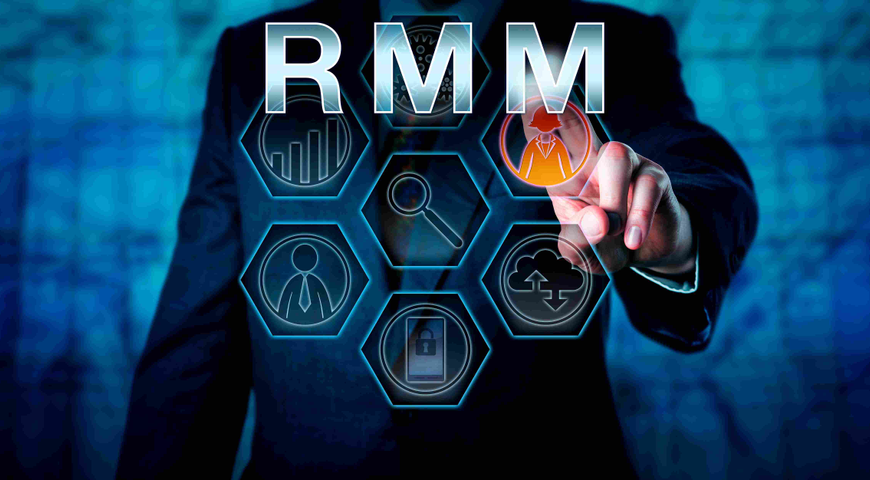Fast backup and agile recovery are critical for your business survival. In fact, they are among the most sought-after features of cyber protection, in a recent ESG report and a number of case studies from Acronis customers. Fortunately, Acronis Backup users can rest easy knowing they're using a backup service that's two times faster than the closest competitor.
Still not sure why a speedy backup should be at the top of your priority list? Here are five reasons why backup speed is crucial to ensuring business continuity, followed by five questions you should ask when choosing a new backup and recovery service vendor.
1. Faster backups free up your time
The amount of data in the world is growing at an astonishing rate. Every year we create twice as much data as the year before, heading toward 180 zettabytes (that’s 180 trillion gigabytes) of new data in 2025.
While most of this data is going to be machine-generated (thanks to the IoT flooding every facet of society), human-produced data will still grow at a breath-taking pace. For example, Scuderia Toro Rosso’s Head of IT Raffaele Boschetti revealed that the amount of data generated daily at the Toro Rosso factory increased by 50 percent in 2017, compared to the volume from the year before.
Despite this explosion of data, IT professionals today have less time than ever to protect it. Because of the volume of data that needs to be managed, backups take longer. System administrators are busy with many other jobs, dealing with their heterogeneous IT environments. They only have so much time to complete all their tasks. That makes the speed of backup a major factor in modern business environments.
2. Faster backups lower RPOs
If your business generates large amounts of data every day, even incremental and differential backups can take a long time. The longer the period between backups, the greater the Recovery Point Objective (RPO) window – the amount of data that’s lost between backups.
If high overhead costs eliminate the option for continuous backup at your organization, a faster backup is the best solution for your business. It empowers you to run more backups in a given time period, bringing RPOs down where you need them. More frequent backups will decrease the likelihood of data loss in case of a disaster.
3. Faster backups reduce RTOs
The ultimate purpose of any backup is to recover data quickly and easily. Recovery Time Objective (RTO) is the target time in which you have to recover data to ensure business continuity. The RTO is normally determined by calculating how much downtime a business can sustain before beginning to suffer negative consequences from data loss.
If downtime isn’t an option at all, you’ll need a backup with fast, multiple data recovery options, like Acronis Backup. It’s designed to provide users with multiple data recovery options, regardless of the kind of data or how it was originally backed up. This includes granular recovery, bare-metal recovery, Acronis Universal Restore, Acronis Instant Restore, Acronis vmFlashback, virtual host recovery, and any-to-any migration. Data protected with Acronis Backup can be restored in mere minutes, on-premises, in the cloud, and even on different hardware.
4. Faster backups free up system resources
Backup software, or its agent, is normally installed on the device that it protects. Modern software may be very light on system resources, but data compression and encryption can still increase CPU and memory usage – potentially harming performance. Similarly, if backup data is transferred to a remote location over the network, it can be a drag on the capacity needed for normal operations. This is why backups are traditionally scheduled during off-peak hours when the system is free from other tasks.
If your backup software drains your processing power, it’s time to move on. Acronis Backup is light on system resources and can run in the background the whole day, without affecting your daily operations. In addition, it comes with off-host backup processing options, allowing users to move resource-intensive tasks – such as data replication, clean-up, and validation – to a different host, freeing up even more resources.
5. Faster backups simplify cyber protection
Fast backup is the result of innovative, advanced technology. Just like you expect a new smartphone to be fast and take care of more than just phone calls, innovative backup software from vendors like Acronis also offer more than just backup.
Acronis backup services are based on a flexible hybrid cloud architecture, which gives you complete control over data management. It can also indirectly improve the speed of data protection as a whole since you can choose where to store data and how to restore it when it’s needed.
Plus, it comes with Acronis Active Protection, a cutting-edge anti-ransomware technology that detects and stops ransomware attacks and instantly restores any affected data, and blockchain-based data certification through Acronis Notary to ensure easy verification. Taken all together, Acronis Backup simplifies cyber protection, making it easy, efficient, and secure.
Questions to ask your backup vendor:
- Can their data protection solution evolve alongside your business, protecting growing amounts of data without putting undue pressure on your resources?
- Will you be able to protect all your data, including all workloads in all environments, with a single backup solution?
- Is your growing data going to affect the recovery time and will you be able to restore your data on any hardware or even a different environment?
- Will their solution give you the flexibility to choose where to store the protected data, on-premises or in the cloud?
- Are there proactive defenses against ransomware built into their solution to help you protect your data from cyberattacks?
Acronis meets all of the requirements mentioned above. To find out more, visit https://www.acronis.com/en-us/business/backup/.
About Acronis
A Swiss company founded in Singapore in 2003, Acronis has 15 offices worldwide and employees in 50+ countries. Acronis Cyber Protect Cloud is available in 26 languages in 150 countries and is used by over 21,000 service providers to protect over 750,000 businesses.


